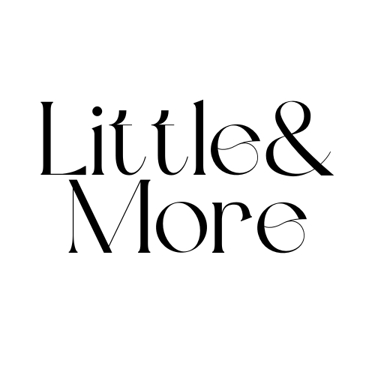Couples Therapy: How Relationship Counseling Can Strengthen Love
Relationships are one of the most fulfilling parts of life, but they can also be incredibly challenging. Even the strongest couples face conflicts, miscommunication, and periods of distance. That’s where couples therapy—also called relationship counseling or marriage counseling—comes in. Far from being a last resort, therapy for couples is a powerful tool to improve communication, resolve conflicts, and rebuild emotional connection. In this blog, we’ll explore what couples therapy is, its benefits, and why investing in counseling could be the best decision for your relationship.
RELATIONSHIPS
8/23/20254 min read


What is Couples Therapy?
Couples therapy is a type of psychotherapy designed to help partners understand each other better, improve communication, and work through conflicts in a safe and supportive environment. Guided by a trained therapist, couples learn healthy ways to express emotions, listen actively, and rebuild trust.
It’s not just for couples in crisis—relationship counseling is helpful at any stage, whether you’re dating, newly married, or in a long-term partnership.
Why Couples Seek Therapy
Every relationship has unique struggles, but here are some common reasons couples turn to therapy:
Communication Issues – Misunderstandings, constant arguments, or difficulty expressing emotions.
Trust Problems – Infidelity, broken promises, or lack of emotional safety.
Intimacy Challenges – Physical or emotional disconnection.
Life Transitions – Adjusting to marriage, parenthood, career changes, or moving.
Financial Stress – Disagreements over money and priorities.
Unresolved Conflicts – Arguments that repeat without resolution.
Considering Divorce – Exploring whether the relationship can be saved.
Benefits of Couples Therapy
Couples therapy isn’t just about “fixing” a broken relationship—it’s about building a stronger foundation for love and respect. Here are the major benefits:
1. Improved Communication
Many couples struggle to truly listen to one another. Therapy teaches active listening, empathy, and healthy ways to express needs without blame or anger.
2. Conflict Resolution Skills
Arguments are normal, but therapy helps partners resolve disagreements without damaging the relationship. You’ll learn to compromise and find win-win solutions.
3. Rebuilding Trust
If trust has been broken—through betrayal, dishonesty, or neglect—therapy provides a path toward healing and forgiveness.
4. Deeper Emotional Connection
Couples therapy creates a safe space for vulnerability, allowing partners to reconnect emotionally and rediscover intimacy.
5. Preventing Future Issues
Therapy isn’t only reactive. Many couples use counseling as a proactive way to strengthen their bond before small problems turn into bigger ones.




Popular Types of Couples Therapy
Different methods are used in relationship counseling. A skilled therapist may use one or combine several:
Emotionally Focused Therapy (EFT): Helps couples identify negative patterns and build secure emotional bonds.
Gottman Method: Based on research, it focuses on improving communication, reducing conflict, and increasing intimacy.
Cognitive-Behavioral Therapy (CBT) for Couples: Works on changing negative thought patterns and behaviors that harm the relationship.
Imago Relationship Therapy: Focuses on healing childhood wounds that affect adult relationships.
Common Myths About Couples Therapy
Many people hesitate to seek therapy because of misconceptions. Let’s clear some up:
Myth 1: Therapy is only for couples about to break up.
Truth: Counseling is helpful for all couples, even those who simply want to strengthen their bond.Myth 2: A therapist will take sides.
Truth: A good therapist remains neutral, guiding both partners equally.Myth 3: Talking to a stranger won’t help.
Truth: Therapists are trained professionals who provide objective tools and strategies.
When Should You Consider Couples Counseling?
If you notice any of these signs, it may be time to seek therapy:
Constant arguing without resolution
Feeling more like roommates than partners
Loss of intimacy and affection
Repeated trust issues
Avoiding important conversations
Considering separation or divorce
Remember, seeking help early prevents deeper issues later.
What to Expect in Couples Therapy
A typical session involves both partners meeting with the therapist together (sometimes with individual sessions if needed). Expect to:
Discuss challenges openly in a non-judgmental setting.
Identify unhealthy patterns that cause recurring conflict.
Practice new communication skills during and outside sessions.
Set relationship goals and track progress over time.
Sessions usually last 50–90 minutes and can occur weekly or bi-weekly, depending on the couple’s needs.
Tips to Make Couples Therapy Successful
Be Open-Minded – Go in willing to listen and grow.
Commit to the Process – Progress takes time; patience is key.
Apply Skills at Home – Practice new communication tools outside therapy.
Focus on Teamwork – Remember, it’s not you vs. your partner, but both of you vs. the problem.
Alternatives and Complements to Couples Therapy
If traditional counseling isn’t an option, other resources can also help:
Online Therapy for Couples – Convenient and accessible from home.
Workshops & Retreats – Intensive sessions focused on strengthening bonds.
Books & Podcasts – Self-help tools for improving communication and intimacy.
Final Thoughts
Every relationship faces ups and downs, but what sets strong couples apart is their willingness to work through challenges together. Couples therapy offers a safe, supportive space to improve communication, rebuild trust, and rediscover intimacy.
Whether you’re struggling with constant conflict, considering separation, or simply want to strengthen your bond, relationship counseling can be a powerful step toward healing and growth.
Investing in therapy isn’t a sign of weakness—it’s a sign of commitment. By seeking help, you’re showing that your love is worth fighting for, and that’s one of the strongest choices any couple can make.


